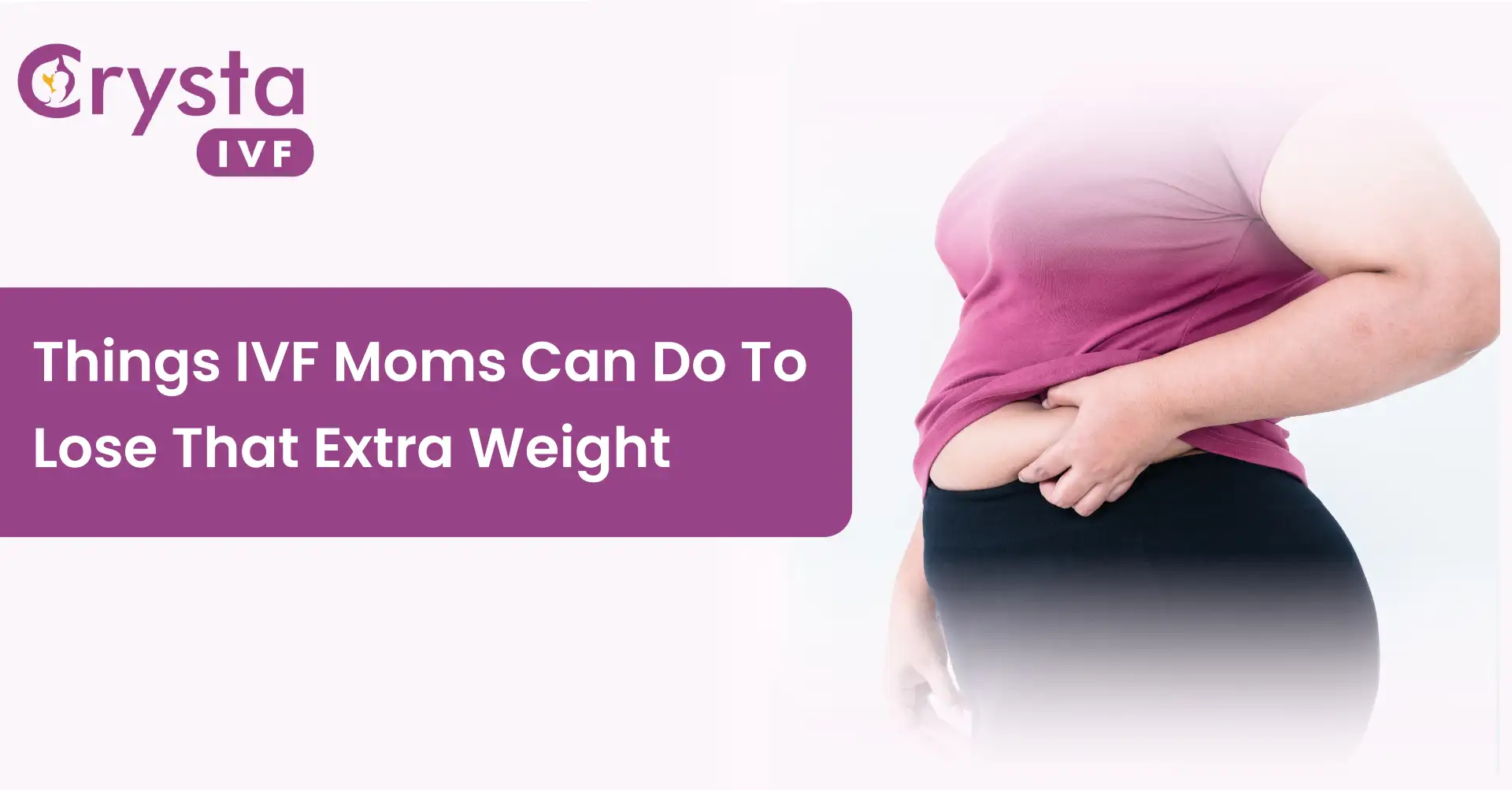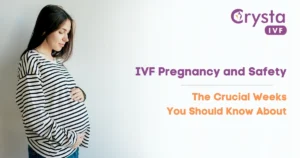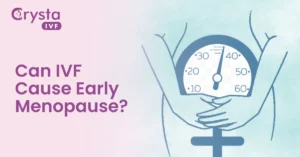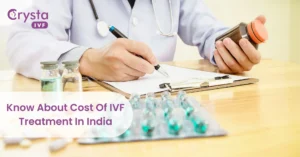In Vitro Fertilization (IVF) is the most effective option for couples unable to conceive a child naturally. While IVF has a better success rate than any other assisted reproduction, it also has a few risks and complications. The most common side effect you’ll see is the extra kilos adding to your body’s weight.
The IVF cycle can be full of anxiety, questions & hope for most couples awaiting parenthood. However, for a female partner, the journey can be overwhelming as she is the one that bears the brunt of all those gonadotropin injections and processes to sail through.
It is common to get long-term sequela, and weight gain can be counted as an aftermath of the IVF process. An increase in weight can be attributed to the increased levels of estrogen and progesterone in your body and the need for more calories to support your pregnancy.
However, extra kilos after an IVF pregnancy should not be a cause for concern if you are careful about what you eat and get plenty of exercises. So, keep reading to know why you gain weight in the IVF process and your options to get rid of it.
Relationship Between IVF Process & Weight Gain
IVF is a complex process of assisted reproduction that involves different phases starting from fertility analysis to pregnancy tests; there’s a lot included in one IVF cycle. However, IVF does offer a higher success rate than any other ART (assisted reproductive technology), such as Intrauterine insemination (IUI).
During IVF, a woman’s egg is combined with the partner’s sperm in glass to develop the embryo(s). The resulting embryo is transferred to the uterus for implantation or otherwise kept frozen for future trials. The process involves:
- Getting fertility health evaluated
- Planning IVF treatment depending upon the cause of infertility & personal need
- Ovarian stimulation begins using medications and injections
- Mature eggs are retrieved using a needle in a small surgical procedure
- Partner’s sperm is collected
- The fertilization process starts in a laboratory (Collected egg & sperm are kept together)
- Fusion develops embryo(s) that may go through genetic testing
- Embryo transfer is done on day 3 or day 5 of the embryo for implantation
- A pregnancy test is scheduled 2-3 weeks after the transfer
- A higher hCG level in the bloodstream usually indicates the beginning of pregnancy.
Though many factors may affect your chances of IVF success, a healthy Weight is among the crucial ones. Being overweight or obese may cause irregular menstrual cycles that may even prevent eggs from being released during ovulation.
There is a lot of misinformation about the relationship between the IVF process and weight. Some people believe that being overweight can make it harder to conceive, while others think the IVF process can lead to weight gain.
But how does weight gain occur during IVF in the first place?
Before jumping straight to the answers, it is essential to understand that every pregnancy causes some weight gain. Therefore, you must not confuse it with IVF treatment as being a culprit.
IVF process involves ovarian stimulation (also known as the superovulation phase) where the reproductive hormones, i.e., FSH (follicle-stimulating hormone), are triggered using miraculous drugs & recombinant FSH injections. These drugs, in turn, cause your follicles to grow altogether, a phenomenon doctor’s like to call multi-follicular development.
As a result, your body’s estrogen and progesterone levels increase. These hormones cause the cells in your body to retain salt and water while helping your follicles grow.
Some patients complain of feeling bloated during hormone stimulation. But the good news is that it’s a temporary symptom. Once your stimulation is over, your hormones return to normal levels. Eventually, you lose all that extra salt and water, resulting in weight loss.
Apart from this, some women are also recommended to put on weight during IVF to support the pregnancy. However, with proper management, it can be controlled.
The science may never indeed be certain if IVF drugs cause this or not. But, while you cannot control the effect the IVF hormones will have, you can control food intake and activity levels.
Things IVF Moms Can Do To Lose That Extra Weight
Suppose you’re an IVF mom; first of all, congratulations on embarking on the journey of parenthood. It is better to look at your health to make this special time even more special. Or, even if you didn’t succeed this time, know that you’re not alone, so don’t give up yet just because of the time it will take to accomplish it.
After all, you manage to sail through all this. Now your body needs the care they deserve. Most women often find it hard to take control of their health and manage excess weight.
The key to weight loss for IVF moms is the same as for anyone aiming to get rid of those extra kilos.
- Healthy Eating For a Healthy Weight
A nutritional diet is necessary before, during, or after the IVF process. Eating fresh fruits and green vegetables can do the work! Focus on eating more low-calorie and high in fiber foods that can lead to post-IVF weight loss.
- Plant-Based Protein
Avoid processed meats and fried or breaded meat from your diet. Instead, focus on plant-based proteins such as beans, lentils, soy, nuts, and seeds.
- Daily Exercise Is Wise
Hitting a gym and getting involved in daily light-to-moderate physical exercise or aerobics won’t help you lose extra weight but also helps improve your mood and strengthen your bones. Apart from it, yoga and meditation should also be practiced. However, consult with your doctor or trainer before involving in strenuous exercise.
- Adequate Consumption of Whole Grain
Making your grains whole helps stabilize blood glucose and prevent hormonal fluctuations. So make sure to add some grain to your diet, including whole fruits, brown rice, barley, and cereals.
- Avoid Unhealthy Health Goals
While finding your way to a healthy lifestyle again, you should be aware of the foods & choices to cut back from your daily lifestyle. This may include processed foods, alcohol, caffeinated drinks, smoking, stress, anxiety, etc.
On The Whole
The miraculous accomplishments of modern medical science – IVF have made parenthood’s dream possible for millions of couples around the world. Though despite all the advancements, some risks and complications are inevitable. If you’re concerned about your health and weight gain after the process, it’s time to get some knowledge and get the right things done.
After IVF pregnancy, it is essential to maintain a healthy diet and exercise regimen. This will help in the process of weight loss. as well as helping to avoid complications later in life.
The good news is that the best IVF centre in Lucknow, such as Crysta IVF, are committed to providing post-pregnancy care and fertility services so couples can enjoy this most incredible bliss of life to the fullest. We advise you to get in touch with a fertility expert to make healthy choices for you and your baby.




